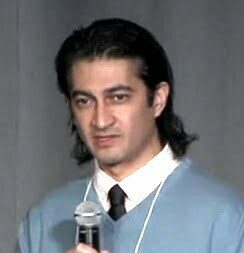Seeking and obtaining assent from clients and research participants is an important component of behavior analytic practice and research. However, typical assent procedures primarily rely on spoken and written communication that may not be feasible for individuals with significant communication difficulties. Thus, practitioners serving individuals with autism spectrum disorder (ASD) and related developmental disabilities (DD) who have limited communication abilities may need to utilize alternative methods for seeking assent. The purpose of this presentation is to introduce assent and related terms and concepts, discuss the importance of assent, and propose practical strategies for obtaining assent with clients who cannot assent through traditional means.
[su_accordion]
[su_spoiler title=”About the Speakers” open=”no” style=”default” icon=”plus”]
Dr. Cody Morris is an Assistant Professor and Graduate Program Director of Applied Behavior Analysis at Salve Regina University. He earned his doctorate in Behavior Analysis at Western Michigan University, where he studied under Dr. Stephanie Peterson. Cody’s primary research interest is improving the practice of behavior analysis – which involves improving assessment and treatment techniques for challenging behavior, identifying and addressing barriers to practice, and exploring conceptual issues related to practice.
Jessica J. Detrick, M.A., BCBA, LBA, is a doctoral student in Clinical Psychology at Western Michigan University. She received her B.A. (2016) from the University of Iowa and M.A. (2018) from the University of Missouri. Jessica is a Project Coordinator and Clinical Supervisor of the Psychological Assessment and Treatment Services (PATS) team. PATS is a team of BCBAs working with Integrated Services of Kalamazoo who provide consultative services to adult and children consumers with developmental disabilities, mental illness, and emotional behavior disorders who engage in challenging behaviors.
[/su_spoiler]
[su_spoiler title=”Survey Results” open=”no” style=”default” icon=”plus”]
[surveyresults module=”Toward an Understanding of Assent with Individuals with Communication Disabilities”]
[/su_spoiler]
[/su_accordion]























